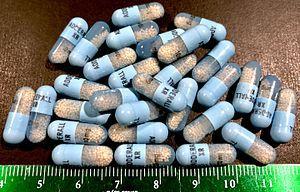In the age of electronics, it does not seem outlandish to assume society has many distractions. Attention-deficit disorders and hyperactivity disorders have been on the rise for years, and the powerful solution to these disorders have been drugs like Adderall, Ritalin, Concerta, Vyvanse and more. These medications are well known and highly circulated because of their potent effect in improving attention span and soothing hyperactivity.
Even with all the perceived benefits drugs like Adderall offer, they are still classified as controlled substances. Adderall is technically classified as a Schedule II controlled narcotic, which is a classification of drugs known for its high potential for abuse.
While Schedule II narcotics are a wide variety of different drugs, Adderall is an amphetamine, so drugs like these are medically classified in the same family as crystal meth, speed and ecstasy. The question then becomes: should kids, teens and young adults be taking watered-down meth? Even when prescribed by a doctor?
The answer is obviously very tough. It is hard to say no to medicine that has potential to help, especially when a doctor recommends it. However, there needs to be more of a conversation about alternative options for treatment of people with a disorder and preventative measures for stopping the abuse of these drugs by people without a disorder.
The negative effects of stimulants is subtly scary when closely examined. Some people experience negative side effects like appetite suppression and unhealthy weight loss, trouble sleeping, irritability, anxiousness and sometimes even cardiac issues.
This would be less troublesome if these were the side effects of a medicine taken on a short-term basis. However, abuse of these drugs is very common and can blossom into an addiction that lasts years. According to The Huffington Post, abuse of Adderall and its imitators has increased by nearly 200 percent.
Each individual case is unique, but when weighing the pros and cons of medication like this, it should only be used for severe cases of ADD/ADHD. Even with a mild disorder, medication can still do more harm than good. It is not advantageous to individual growth, maturity and success to rely on medicine to achieve normality.
It’s even worse — and arguably more detrimental to people’s success — when they take the medication without a prescription. This happens for many reasons in college, such as gaining an edge on peers and a perceived ability to crush academics. One of the worse reasons being the consumption of it to stay up to party and increase alcohol tolerance.
This is in no way a slight to anyone who has been diagnosed by a medical doctor with ADD/ADHD or who is struggling with that disorder. However, to the college kids who take these drugs unprescribed to perform better because they “can’t pay attention,” here is the reality: nothing is wrong with you. We all have times when we get distracted, but it doesn’t mean we should be able to use whatever drugs we want.
A study published by the Journal of Clinical Psychiatry found that ER visits from the misuse of Adderall rose 156 percent from 2006 to 2011. This is becoming more commonplace and affects college kids disproportionately. The solution is the same as having a hard task at hand: buckle down and take control. Lack of motivation and personal responsibility cannot be fixed by any medicine.
New ways of schooling people with these disorders needs to be discussed. Expecting every kid to fit the same academic mold is unrealistic. If we move away from this mindset, the need for medicine is lessened because we have fewer expectations.
Jacob Maranto is 21-year-old mass communication senior from Plaquemine, Louisiana.
Opinion: Students should not abuse drugs like Adderall
August 31, 2017





